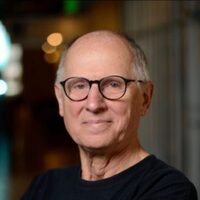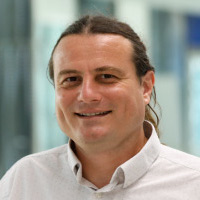| Hynek Hermansky Johns Hopkins University Whiting School of Engineering Baltimore, USA hynek@jhu.edu | 
|
Abstract: We often present advances in automatic recognition of speech (ASR) by describing the most successful configuration of available open software processing modules, sometimes adding new elements, and reporting the accuracy of the obtained results. So, what is being reported to the community is HOW the work was done and WHAT has been the output. That is understandable since reviewers are evaluating our papers by checking if the work is replicable (the HOW element) and if the progress is demonstrated (the WHAT element). However, one can argue that more scientific progress could be made when the report also contains an explanation of WHY the processing was effective. Some attempts to follow this advice in our own work are discussed in the talk.
Hynek Hermansky's Biography
Hermansky serves in leadership roles for the field’s key workshops and conferences presents invited lectures and keynote presentations around the globe and were lecturing worldwide as the Distinguished Lecturer for ISCA and for IEEE. Hermansky was the General Chair of INTERSPEECH 2021 in Brno, Czech Republic, was a General Chair of the 2015 IEEE Workshop on Automatic Speech Recognition and Understanding (ASRU), and chair of the technical committee for the ICASSP 2000. In addition to leading several Hopkins’ CLSP workshops, he was also on the organizational committee for ASRU 2017, ASRU2013 and ASRU 2005, for ten years was the executive chair of the annual ISCA-sponsored workshops on Text, Speech, and Dialogue in the Czech Republic, and was a tutorial speaker at Interspeech 2015. He received a M.S. in Electrical Engineering (1972) from Technical University Brno, Czech Republic and a Ph.D. in Electrical Engineering (1983) from University of Tokyo, Japan.

|
Preslav Nakov Natural Language Processing Department Mohamed bin Zayed University of Artificial Intelligence Masdar City Abu Dhabi preslav.nakov@mbzuai.ac.ae |
Abstract:
We will discuss the risks, the challenges, and the opportunities that Large Language Models (LLMs) bring regarding factuality. We will then delve into our recent work on using LLMs for fact- checking, on detecting machine-generated text, and on fighting the ongoing misinformation pollution with LLMs. We will also discuss work on safeguarding LLMs, and the safety mechanisms we incorporated in Jais-chat, the world's best open Arabic-centric foundation and instruction-tuned LLM, based on our Do-Not-Answer dataset. Finally, we will present a number of LLM fact-checking tools recently developed at MBZUAI: (i) LM-Polygraph, a tool to predict an LLM's uncertainty in its output using cheap and fast uncertainty quantification techniques, (ii) Factcheck-Bench, a fine- grained evaluation benchmark and framework for fact-checking the output of LLMs, (iii) OpenFactVerification (Loki), an open-source tool for fact-checking the output of LLMs, developed based on Factcheck-Bench and optimized for speed and quality, and (iv) OpenFactCheck, a framework for building customized fact-checking systems and for benchmarking entire LLMs.

 Conference Photos
Conference Photos